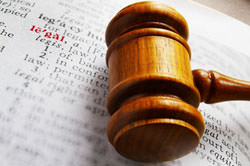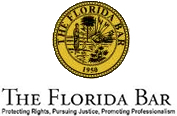Have you lost a loved one due to the negligence or misconduct of someone else?
If so, your family members or survivors may work together with McKyton Law Firm to file a wrongful death lawsuit.
A wrongful death lawsuit seeks compensation for the survivor’s losses.
What is a Wrongful Death Lawsuit?
Wrongful death claims are lawsuits filed when someone dies due to someone else’s legal fault. Every state in the country now has wrongful death laws. These claims can involve all types of fatal accidents.
- Car Accident
- Medical malpractice
- Product Liability
Wrongful death lawsuits are filed by surviving family members to obtain financial compensation for damages.
Do I Need A Wrongful Death Attorney?
The simple answer – is YES. If you are pursuing a wrongful death lawsuit, you need an attorney. Your life and the lives of family members have been forever changed. You have lost a loved one. Compensation could be worth millions in some cases.
In wrongful death cases, the lawsuit should be filed as soon as possible and in the court with jurisdiction over the case. This often means the claim will be filed where the death occurred.
Most often, cases are negotiated with insurance companies representing the individual or entity directly responsible for the harm. You need an experienced wrongful death attorney to help you navigate the legal system and protect your rights.
Types of Compensation for Wrongful Death
Wrongful death compensation depends on many factors, including the extent of the loss that occurred. Each case is unique to the individual family, so there is no average settlement.
Understanding the types of damages plaintiffs are compensated for can help a family understand what compensation might look like. Plaintiffs in a wrongful death lawsuit may be compensated for:
- Hospitalization
- Medical Expenses
- Burial Expenses
- Any Funeral Expenses
- Loss of Income
- Loss of Potential Earnings
- Loss of Protection, Guidance, and Inheritance
- Loss of Consortium
- Pain and Suffering of the victim before death
Punitive damages may also be available after a wrongful death lawsuit. These are not designed to compensate for actual losses but to punish the defendant for intentional or grossly negligent conduct.
Who Can File a Wrongful Death Claim?
Typically, a wrongful death claim is filed by a representative of the deceased’s estate. It is filed on behalf of the survivors who had a relationship with the victim. The survivors that can file vary from state to state.
In every state, a spouse can file a wrongful death lawsuit on behalf of the deceased. The parent of a minor child can also file a lawsuit if one of their children is killed.
Minors may collect compensation if their parent or parents are killed.
State laws differ regarding whether parents of adult children can sue if adult children can sue for the wrongful death of their parents, if grown siblings can sue for wrongful death, or if extended relatives like cousins, aunts, uncles, or grandparents can sue on behalf of the deceased person.
In some states, marriage isn’t a requirement for a partner to bring a wrongful death lawsuit. In some states, anyone showing financial dependence on the deceased can file a lawsuit.
Contact McKyton Law Firm for answers to your questions on receiving compensation following the loss of a loved one. The process can be long and difficult. We want to help you navigate those rough waters. Without an experienced attorney, proving and winning a wrongful death lawsuit can be difficult. The McKyton Law Firm has invaluable expertise in proving your case and keeping it moving.
Florida Wrongful Death Act
 The “Florida Wrongful Death Act” is defined and explained in Florida Statute Sections 768.16 – 768.26. A “Wrongful Death” claim is, to a certain extent, similar to a “Personal Injury” claim. In a “Personal Injury” matter, an individual suffered injury and loss as a result of the negligence of another. A “Wrongful Death” claim results when the actions of one individual cause the death of another.
The “Florida Wrongful Death Act” is defined and explained in Florida Statute Sections 768.16 – 768.26. A “Wrongful Death” claim is, to a certain extent, similar to a “Personal Injury” claim. In a “Personal Injury” matter, an individual suffered injury and loss as a result of the negligence of another. A “Wrongful Death” claim results when the actions of one individual cause the death of another.
Florida Statute 768.19 defines the “Right of Action” for a “Wrongful Death” claim and states the following:
“When the death of a person is caused by the wrongful act, negligence, default, or breach of contract or warranty of any person, including those occurring on navigable waters, and the event would have entitled the person injured to maintain an action and recover damages if death had not ensued, the person or watercraft that would have been liable in damages if death had not ensued shall be liable for damages as specified in this act notwithstanding the death of the person injured, although death was caused under circumstances constituting a felony.”
The “Wrongful Death” claim, obviously, can not be brought be the deceased individual, The claim is brought by the “Personal Representative” of the decedent’s estate. Florida Statute 768.20 defines who, specifically, may bring a “Wrongful Death” claim and states the following:
“The action shall be brought by the decedent’s personal representative, who shall recover for the benefit of the decedent’s survivors and estate all damages, as specified in this act, caused by the injury resulting in death. When a personal injury to the decedent results in death, no action for the personal injury shall survive, and any such action pending at the time of death shall abate. The wrongdoer’s personal representative shall be the defendant if the wrongdoer dies before or pending the action. A defense that would bar or reduce a survivor’s recovery if she or he were the plaintiff may be asserted against the survivor, but shall not affect the recovery of any other survivor.”
The “Damages” or what monetary compensation may be recovered on behalf of the decedent’s estate and its survivors is addressed in Florida Statute 768.21 and states the following:
All potential beneficiaries of a recovery for wrongful death, including the decedent’s estate, shall be identified in the complaint, and their relationships to the decedent shall be alleged. Damages may be awarded as follows:
(1) Each survivor may recover the value of lost support and services from the date of the decedent’s injury to her or his death, with interest, and future loss of support and services from the date of death and reduced to present value. In evaluating loss of support and services, the survivor’s relationship to the decedent, the amount of the decedent’s probable net income available for distribution to the particular survivor, and the replacement value of the decedent’s services to the survivor may be considered. In computing the duration of future losses, the joint life expectancies of the survivor and the decedent and the period of minority, in the case of healthy minor children, may be considered.
(2) The surviving spouse may also recover for loss of the decedent’s companionship and protection and for mental pain and suffering from the date of injury.
(3) Minor children of the decedent, and all children of the decedent if there is no surviving spouse, may also recover for lost parental companionship, instruction, and guidance and for mental pain and suffering from the date of injury. For the purposes of this subsection, if both spouses die within 30 days of one another as a result of the same wrongful act or series of acts arising out of the same incident, each spouse is considered to have been predeceased by the other.
(4) Each parent of a deceased minor child may also recover for mental pain and suffering from the date of injury. Each parent of an adult child may also recover for mental pain and suffering if there are no other survivors.
(5) Medical or funeral expenses due to the decedent’s injury or death may be recovered by a survivor who has paid them.
(6) The decedent’s personal representative may recover for the decedent’s estate the following:
(a) Loss of earnings of the deceased from the date of injury to the date of death, less lost support of survivors excluding contributions in kind, with interest. Loss of the prospective net accumulations of an estate, which might reasonably have been expected but for the wrongful death, reduced to present money value, may also be recovered:
1. If the decedent’s survivors include a surviving spouse or lineal descendants; or
2. If the decedent is not a minor child as defined in s. 768.18(2), there are no lost support and services recoverable under subsection (1), and there is a surviving parent.
(b) Medical or funeral expenses due to the decedent’s injury or death that have become a charge against her or his estate or that were paid by or on behalf of decedent, excluding amounts recoverable under subsection (5).
(c) Evidence of remarriage of the decedent’s spouse is admissible.
(7) All awards for the decedent’s estate are subject to the claims of creditors who have complied with the requirements of probate law concerning claims.
(8) The damages specified in subsection (3) shall not be recoverable by adult children and the damages specified in subsection (4) shall not be recoverable by parents of an adult child with respect to claims for medical negligence as defined by s. 766.106(1).
In every type of claim in the State of Florida, there is a statue of limitations that restricts the time frame wherein the claim can be made. Under Florida Statue 95.11, a “Wrongful Death” must be commenced within two (2) years of the date of decedent’s death.





